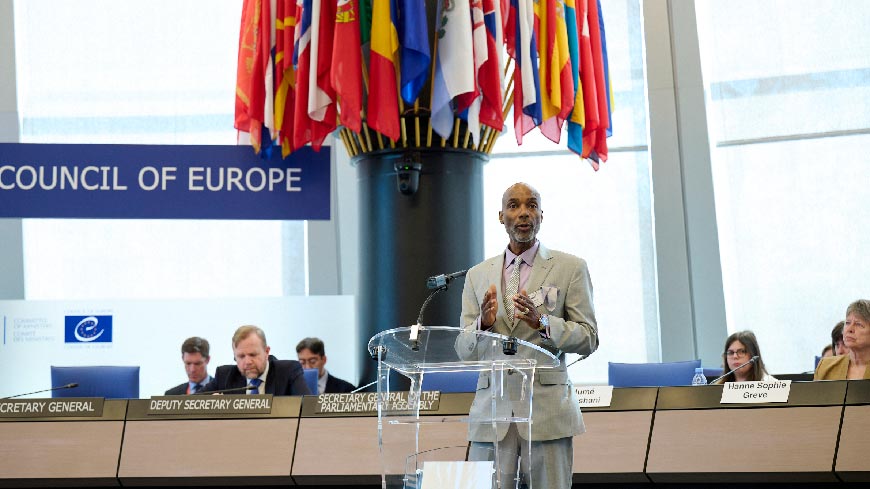At the initiative of the Icelandic Presidency of the Committee of Ministers and the Permanent Representation of France, the Committee of Ministers held a thematic discussion on the abolition of the death penalty on 5 April, with the participation of speakers who gave testimonies based on their personal experience.
The Ministers’ Deputies exchanged views with Ndumé Olatushani, who spent 28 years in prison in the United States, 20 of them on death row, for a crime he never committed; Hanne Sophie Greve, Commissioner, International Commission against the Death Penalty, former judge at the European Court of Human Rights; Richard Sédillot, lawyer specialised in the defence of persons sentenced to death throughout the world and member of Ensemble contre la peine de mort; and the director of a documentary film on death penalty in Belarus. The Council of Europe Deputy Secretary General, Bjorn Berge, also spoke at the event.
In a context of resurgence in Europe of debates on the possibility of reintroducing the death penalty, as well as two extensions of the scope of application of the death penalty in Belarus in less than a year, it is key to remain vigilant. The Secretary General of the Council of Europe, Marija Pejčinović Burić, said: “This is a wake-up call for Europe. To carry out the death penalty is to cross a moral line that no democracy should breach. Capital punishment is immoral and irreversible. European governments should be proud to have abolished it, and crystal clear that this will not change”.
On the same day, and as it does every semester, the Committee of Ministers adopted a set of decisions on the abolition of the death penalty. It notably reiterated the Council of Europe’s aim to create a death penalty-free zone in Europe and beyond, called on member States to stand firm in their commitment in this respect and encouraged initiatives to promote the global abolition of capital punishment.
The Council of Europe and the abolition of the death penalty



